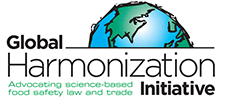
Food Microbiology Working Group
Food Microbiology Working Group
Co-Chairs

Prof. Dr. Stanley Brul
The Netherlands

Dr. Rozita Vaskoska
Australia
Mission
The mission of the Food Microbiology Working Group (WG) is to strive for evidence-based and rational harmonization of criteria, regulations and legislation relevant to the microbiology of foods. The WG will investigate and build scientific consensus around the food safety and spoilage challenges associated with microorganisms in foods.
Harmonized microbiological food safety regulations will make it possible to implement targeted, appropriate and standardized measures to reduce foodborne microbe-associated morbidity and mortality, improve development and adoption of pathogen reduction technologies and measurement/detection instrumentation, remove barriers to trade, and improve food security.
Topics & Objectives
The Food Microbiology Working Group’s aim is underpinned by the definition of criteria for foods relating to their quality and safety:
- The food to be tested
- The contaminant/analyte of concern
- The analytical method to be employed
- The sampling protocol
- The limits to be applied
Currently, there are numerous methods for microbiological analysis of foods. This pertains not only to the range of so-called standard, typically cultural methods, but the plethora of alternative, typically rapid methods. Often, the latter are validated against the former, but what do the outcomes mean in terms of validity in other countries or regions? Is it possible to gather evidence that suggests the ‘best’ method, at least as a universal reference point, so any comparative analysis has meaning for a wider geographic user base?
The development and application of limits varies for some analytes, from country to country. For example, for some foods, a low level of Listeria monocytogenes is permitted in some countries, with zero tolerance in others. As another example, E. coli O157:H7 is regulated an adulterant in ground beef in the USA, its presence condemning contaminated product, when extensive cooking would render that product edible.
The Food Microbiology WG plans to tackle a number of issues, including investigations into available scientific evidence, economic impact and regulatory implications related to such areas as:
- The rationalization and, ideally, harmonization of (reference) methods for microbiological analysis of foods to influence the global harmonization of food safety regulations.
- Consideration of limits to be applied to specific foods, for specific analytes, to balance food safety needs with other needs, such as food security.
- Build consensus on microbiological analysis of foods for recommending appropriate regulations.
- Offer recommendations for globally harmonized guidelines
Meetings
Dates, times and locations to be announced.
Interested in joining this Working Group?
If you have suggestions or are interested in joining our efforts and contributing constructively to our Working Group, please contact the Working Group Coordinator via email. Your request will be reviewed to ensure that your expertise is matched to this WG area of interest.
Only registered members of GHI are eligible to join its Working Groups. If you are not already a GHI member, click here to join our global community of scientists and experts. There is no fee to join GHI.
